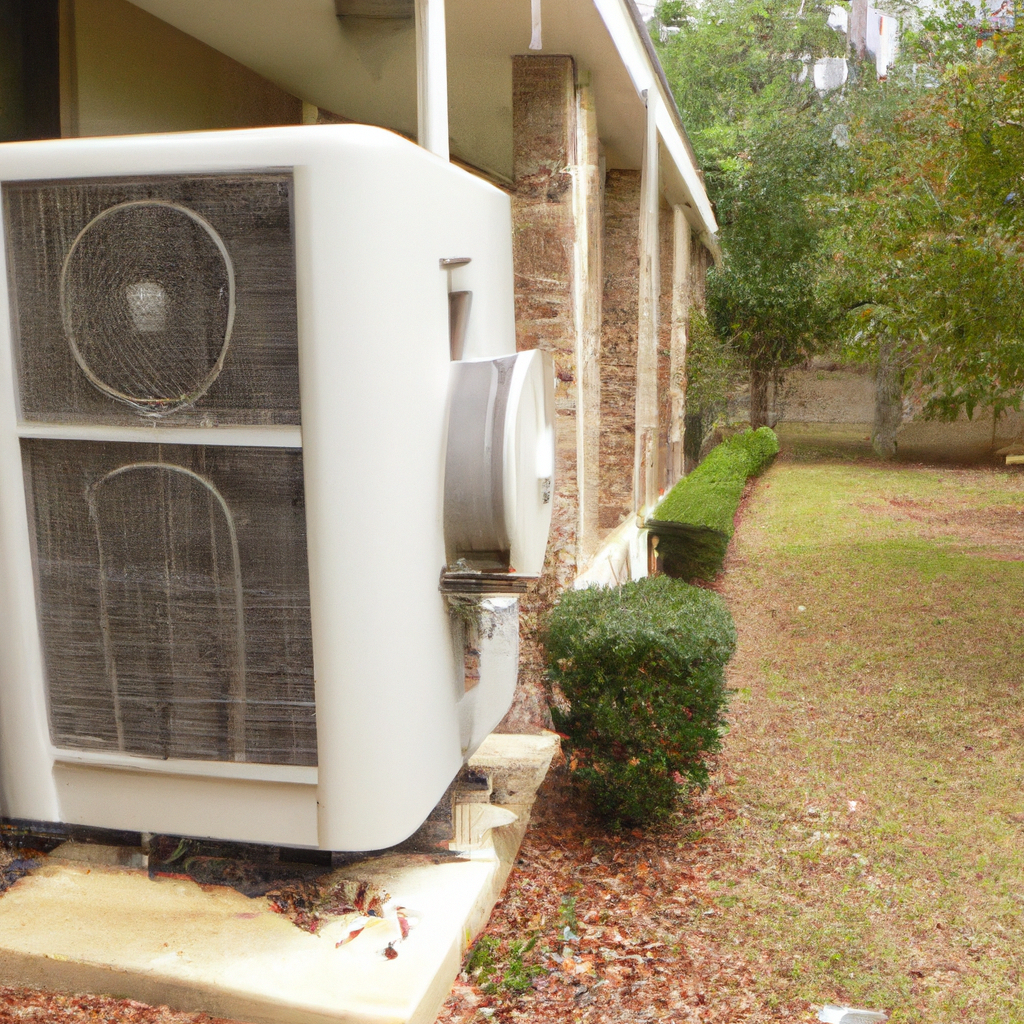Houston is a city of extremes: from hot and humid summers to cold and wet winters, the weather in this part of Texas can be unpredictable. As such, choosing the right heating/cooling system for your home or business can be tricky.
One option that many property owners are considering is heat pumps – but do these devices really work in Houston’s climate?
As an experienced HVAC expert, I believe it’s important to ask yourself two key questions when assessing whether or not a heat pump will work effectively in your area: one, how well does it regulate temperature; and two, what kind of maintenance is needed? In this article, I’ll delve into both topics so you can make an informed decision about investing in a heat pump for your Houston residence or commercial building.
Heat pumps offer numerous benefits over other types of HVAC systems due to their efficient use of energy, which translates into reduced utility bills. Additionally, they provide year-round comfort since they act as both air conditioners and furnaces.
With all these advantages on the table, let’s look more closely at how well heat pumps perform in Houston’s climate – and if there are any special considerations you should keep in mind before making a purchase.
Benefits Of Heat Pumps In Houston
The humid climate in Houston, Texas poses a unique challenge for home and business owners looking to install effective heating systems. Heat pumps are an ideal solution due to their ability to move heat from one place to another.
In fact, the American Council for an Energy-Efficient Economy has placed heat pumps on its list of high priority energy efficiency measures because they can reduce annual energy costs by up to 50%.

Heat pumps offer many advantages when installed in Houston. They require no fuel source other than electricity, so you won’t need any additional tanks or pipes that could take up space inside your building or clog up outdoor areas with extra infrastructure.
Additionally, they don’t produce combustion gases like some furnaces do; this means fewer pollutants released into the atmosphere around your residence or commercial property. Plus, since it moves existing heat rather than generating more itself, a heat pump is far more efficient at providing warmth compared to traditional air conditioners and electric baseboard heaters.
With these benefits considered, there’s little wonder why so many Houstonians turn to heat pumps as their primary source of comfort during winter months. And while choosing the right system is important for achieving optimal performance and savings levels over time, understanding what type of unit best suits your needs is equally critical.
Types Of Heat Pumps Available
Heat pumps are an increasingly popular choice for H-Town homeowners due to their energy efficiency. As such, there’s a variety of heat pump models available that can best suit your home and climate needs.
All feature the core components of a compressor and evaporator coil, but they differ in terms of design and performance capabilities.
The most common type is the air source heat pump (ASHP). This model works by transferring warmth from outside air into your home during winter while extracting it out in summer.
The higher temperature range makes ASHPs more suitable for mild climates like Houston than other types, although they become less efficient when outdoor temperatures drop below freezing point.
Ground source heat pumps (GSHPs) use buried pipes or loops filled with antifreeze solution to transfer heat between the ground and your home. They offer better efficiency ratings compared to ASHPs as the underground system is not impacted by fluctuations in outdoor weather conditions.
GSHPs tend to be more expensive upfront but can reduce running costs over time depending on usage levels.
Next up we’ll explore installation process and cost considerations involved in selecting a new or replacement heating system for Houston homes.
Installation Process And Cost
The process of installing a heat pump in Houston varies from home to home. Firstly, it is important to choose the best model for your property and budget.
Professional technicians should be consulted to determine the size and type of system needed for optimal performance. The installation process typically includes running ductwork, mounting the unit outside, connecting power supply cables, testing all components, and programming settings according to each customer’s individual needs.
Moreover, proper sizing of the equipment is essential for efficient operation. If the system is too large or small for its intended purpose, energy costs can increase significantly over time due to inadequate heating or cooling capacity.
Additionally, an undersized system may require frequent repairs and maintenance as wear and tear on parts will occur more quickly than with correctly sized units. Therefore, having an experienced technician calculate what size system would work best at your property is critical.
In terms of cost-effectiveness, investing in a quality heat pump that has been properly installed by an expert team brings long-term value. Affordable upfront investments can save money down the road due to lower electric bills and fewer costly repair visits.
To ensure you get reliable service that meets expectations without breaking your budget, consult a reputable local contractor who specializes in heat pumps before making any decisions about purchasing one for your home.
For homeowners looking to maximize their investment in comfort and efficiency over time, long-term maintenance must form part of their plan moving forward.
Long-Term Maintenance
Heat pumps in Houston are built with durable materials and designed to withstand the local climate. However, they will require regular maintenance over the long term to keep them running at peak efficiency.
It’s important to pay attention to any changes in performance or strange noises coming from within the unit. These could be signs of a breakdown that can be prevented with early intervention.
The best way to maintain your heat pump is by scheduling professional service visits on an annual basis for a thorough inspection and cleaning. Doing so allows any potential problems to be identified early and repaired before they cause a more costly issue down the road.
The technician should also check all electrical connections, lubricate moving parts as needed, and inspect refrigerant levels.
Additionally, you may want to consider investing in additional protection such as extended warranties or service contracts which provide priority repair services if anything goes wrong outside normal business hours. This added peace of mind ensures that you won’t have any unexpected surprises when it comes time for servicing.
By following these tips, you can ensure that your heat pump remains reliable throughout its lifetime and continues providing cost-effective heating solutions year after year.
Conclusion
Heat pumps are an excellent choice for Houston residents looking to reduce their heating and cooling costs. They offer efficient performance, long-term savings, and require minimal maintenance.
It’s no wonder that so many homeowners in the area have opted for this type of system.
In my experience as a heat pump expert, I can confidently say that these systems work well in Houston’s climate. The key is selecting one with features suited to your needs, installing it correctly according to local codes, and committing to regular maintenance over the life of the unit.
When you do all those things, you’ll enjoy years of reliable service at an affordable cost—and likely save money compared to older HVAC solutions.
The bottom line? Heat pumps are a viable option for anyone living in or around Houston who wants to lower their energy bills without sacrificing comfort!




